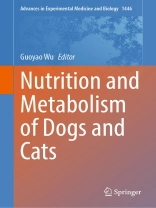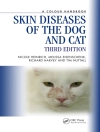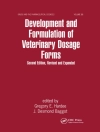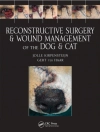This book provides new knowledge about the nutrition and metabolism, as well as the roles of nutrients in the immunity, health, and management of companion animals (dogs and cats). The domestic dog (facultative carnivore) and the domestic cat (obligate carnivore) have evolved differentially in their digestive tract, nutrition, metabolism, chemical sensing, and feeding behavior. These animals have been human companions for at least 12, 000 and 9, 000 years, respectively, and continue to contribute to the mental health and well-being of children, adolescents, and adults. Both dogs and cats have become increasingly popular in many countries and worldwide over the past decades. Comprehensive update about how the animals utilize dietary nutrients for optimum growth, development, and health is beneficial for their owners, as well as students and researchers.
Chapter 4: Characteristics of Nutrition and Metabolism in Dogs and Cats is available open access under a Creative Commons Attribution 4.0 International License
Spis treści
Recent Advances in the Nutrition and Metabolism of Dogs and Cats.- Characteristics of the Digestive Tract of Dogs and Cats.- The Use of Diets in the Diagnosis and Treatment of Common Gastrointestinal Diseases in Dogs and Cats.- Characteristics of Nutrition and Metabolism in Dogs and Cats.- Beyond the Bowl: Understanding amino acid requirements and digestibility to improve protein quality metrics for dog and cat foods.- Functions and Metabolism of Amino Acids in the Hair and Skin of Dogs and Cats.- Functions and Metabolism of Amino Acids in Bones and Joints of Cats and Dogs.- Roles of Nutrients in the Brain Development, Cognitive Function, and Mood of Dogs and Cats.- Nutrition and Aging in Dogs and Cats.- Association between household location (urban vs. rural) and fundamental care provided to domestic dogs (Canis familiaris) in Northern Ireland.- Analysis of Gizzerosine in Foodstuffs by HPLC Involving Pre-Column Derivatization with o-Phthaldialdehyde.
O autorze
Dr. Wu is University Distinguished Professor at Texas A&M University. He was raised on a village farm in Guangdong Province of China, where he helped his family produce pigs, cattle, chickens, and geese, cared for family dogs and cats, and participated in growing rice, corns, peanuts, sweet potatoes, fruit trees, and vegetables. He received the B.S. in Animal Science from South China Agricultural University in Guangzhou (1978–1982), the M.S. in Animal Nutrition from China Agricultural University in Beijing (1982–1984), and the M.Sc. (1984–1986) and Ph.D. (1986–1989) in Animal Biochemistry from the University of Alberta in Edmonton, Canada. Dr. Wu completed his postdoctoral training in diabetes, nutrition, and biochemistry at Mc Gill University in Montreal, Canada (1989–1991), and Memorial University of Newfoundland in St. John’s, Canada (1991). He joined the faculty of Texas A&M University in October 1991.












